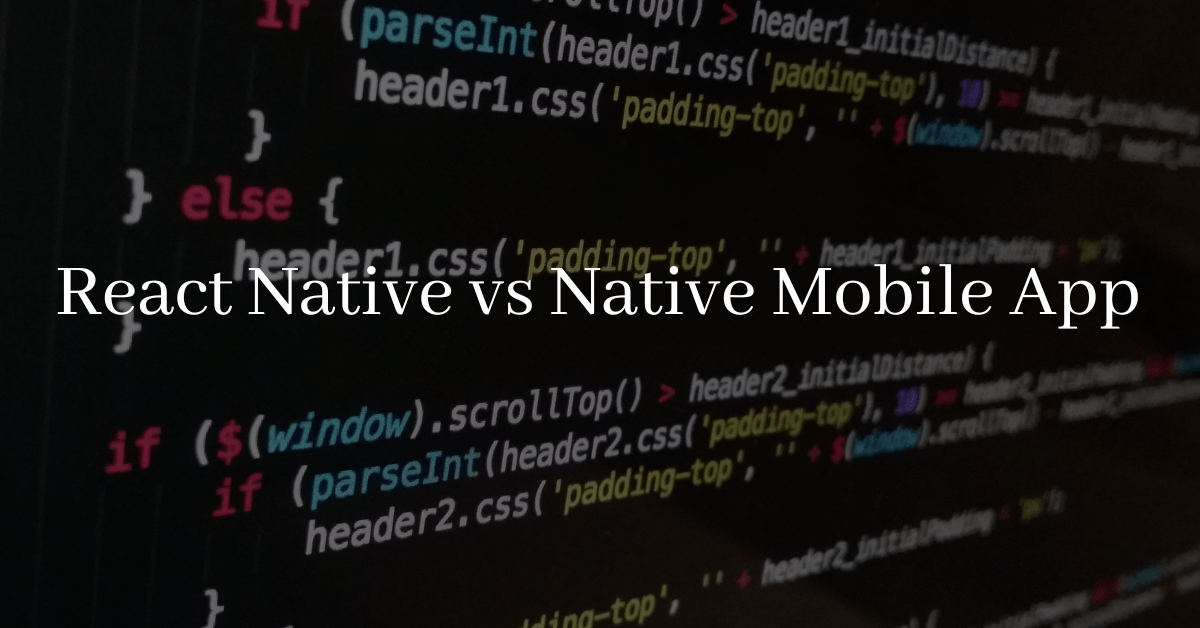
React Native vs Native Mobile App Development: Which One Is Right For You?
Mobile application development has been a rapidly evolving industry, with developers constantly seeking new and innovative ways to deliver high-quality, feature-rich apps to their users. Two popular approaches to mobile app development are React Native and native app development. In this essay, we will provide a comprehensive comparison of the two approaches, highlighting their strengths and weaknesses, and providing insights into when to use one over the other.
React Native is a cross-platform mobile application development framework created by Facebook. It allows developers to build mobile applications using JavaScript and the React framework, which is used for building web applications. React Native applications can be built for both iOS and Android platforms, using a single codebase. This means that developers can build applications faster and more efficiently, without the need for separate development teams for each platform.
On the other hand, native app development involves building applications specifically for either the iOS or Android platform, using their respective programming languages and frameworks (Swift or Objective-C for iOS, and Java or Kotlin for Android). This approach offers more control and flexibility over the app’s performance, look and feel, and overall user experience. Native app development also allows developers to leverage the platform-specific features and APIs to create more sophisticated and engaging user experiences.
When it comes to performance, native apps tend to have an edge over React Native applications. Native apps are built specifically for the platform and can leverage the platform’s capabilities to optimize performance. React Native apps, on the other hand, rely on a JavaScript runtime, which can sometimes result in slower performance.
However, React Native has several advantages over native app development. Firstly, React Native allows developers to write code once and reuse it across multiple platforms, reducing development time and costs. This can be particularly beneficial for small teams or startups with limited resources. Secondly, React Native has a large and active developer community, with many third-party libraries and tools available to help developers build high-quality applications faster. Lastly, React Native is a great choice for building applications with complex user interfaces, as it allows developers to build UI components in a declarative way, which can be easier to maintain and modify.
When it comes to building applications that require access to platform-specific features, such as the camera or the microphone, native app development is often the preferred approach. Native app development also offers better integration with the platform’s APIs, providing more flexibility and control over the app’s functionality.
In conclusion, both React Native and native app development have their strengths and weaknesses, and the choice between the two largely depends on the specific requirements of the application being developed. For applications that require high performance and access to platform-specific features, native app development is often the preferred approach. For applications that require faster development time, code reuse across multiple platforms, and complex user interfaces, React Native is a great choice.
It is important to note that this comparison is not exhaustive and there may be other factors to consider when choosing between React Native and native app development. Ultimately, the decision should be based on the specific needs of the project and the expertise of the development team.